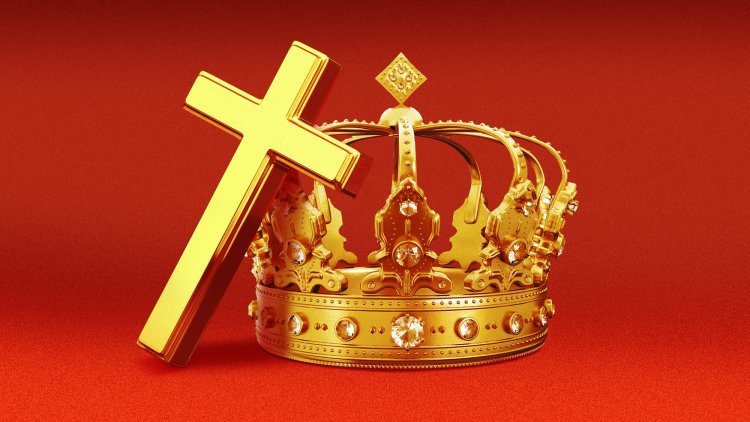Of Course Donald Trump Didn’t Enjoy Hearing a Truly Christian Message
Exhortations for mercy are never easy for the powerful to accept.

When Donald Trump sat down Tuesday beneath the exquisite stained-glass windows of the National Cathedral, he likely expected a sermon that would reflect his earthly glory back to him: something about unity in America, perhaps, or a meditation on fading American Christianity and the possibility of a Christian future, both of which would have flattered the president’s stated priorities. But the sermon Trump heard from Episcopal Bishop Mariann Edgar Budde instead resulted in the president demanding an apology from Budde and the Episcopal Church, calling her “a Radical Left hard line Trump hater” and fuming that she “is not very good at her job!”
Budde earned Trump’s ire by imploring the leader of the free world to show mercy on the weak during a post-inaugural prayer service: “Let me make one final plea, Mr. President. Millions have put their trust in you and, as you told the nation yesterday, you have felt the providential hand of a loving God. In the name of our God, I ask you to have mercy upon the people in our country who are scared now.” Budde specifically listed LGBTQ people and migrants—“the people who pick our crops and clean our office buildings; who labor in poultry farms and meatpacking plants; who wash the dishes after we eat in restaurants and work the night shifts in hospitals.” These members of our society may be undocumented, Budde submitted, but “the vast majority of immigrants are not criminals. They pay taxes and are good neighbors … I ask you to have mercy, Mr. President, on those in our communities whose children fear that their parents will be taken away.”
Trump was outraged by Budde’s remarks, and predictably so: Those vested with an abundance of worldly power should find the radical Christian message of mercy hard to hear, because it demands mildness and leniency of the mighty rather than strength and bombast. As the Book of Wisdom in Catholic and Orthodox Bibles reads: “For the lowliest may be pardoned in mercy, but the mighty will be mightily tested. For the Lord of all will not stand in awe of anyone, or show deference to greatness.”
[Elizabeth Bruenig: If only people actually believed these Trump-as-Jesus memes]
Christian priests and pastors have thus exhorted leaders to mercy for many centuries—in fact, this style of communication with power could constitute its own genre. In the fourth century, Ambrose, the Catholic bishop of Milan, wrote a letter to Roman Emperor Theodosius after a massacre to implore that Theodosius repent of the killings and turn instead to peace: “I urge, I beg, I exhort, I warn, for it is a grief to me, that you who were an example of unusual piety, who were conspicuous for clemency, who would not suffer single offenders to be put in peril, should not mourn that so many have perished … Do not add another sin to your sin by a course of action which has injured many.” Likewise, the 16th-century Dutch Catholic priest Desiderius Erasmus wrote a book titled The Education of a Christian Prince, which seeks to advise Christians who have found themselves in power; his prescription is typically Christian—a turn toward peace, leniency, clemency, and forgiveness.
Trump complained that Budde “brought her church into the World of politics in a very ungracious way.” Such a distinction between religion and politics is something of a farce, as the two categories are not easily disentangled. What can Christian clergy members say when brought before a politician without mentioning the demands placed upon crowned heads by the tenets of Christian morality? There are not two worlds, but rather only one. Budde couldn’t have delivered a truly Christian sermon without addressing the moral obligations that Trump’s stated religion imposes upon believers.
The Christian faith is careful to exhort the powerful to mercy because mercy is so opposed to the exercise of power; in fact, mercy requires that a leader restrain themselves from the harshest of decrees and punishments, and the Christian tradition proudly recommends as much. For having mercy protects not only mercy’s recipients, but also the merciful themselves. What Trump despises in Budde’s plea for mercy may be the key to saving his own soul—if only he would listen.
What's Your Reaction?




















